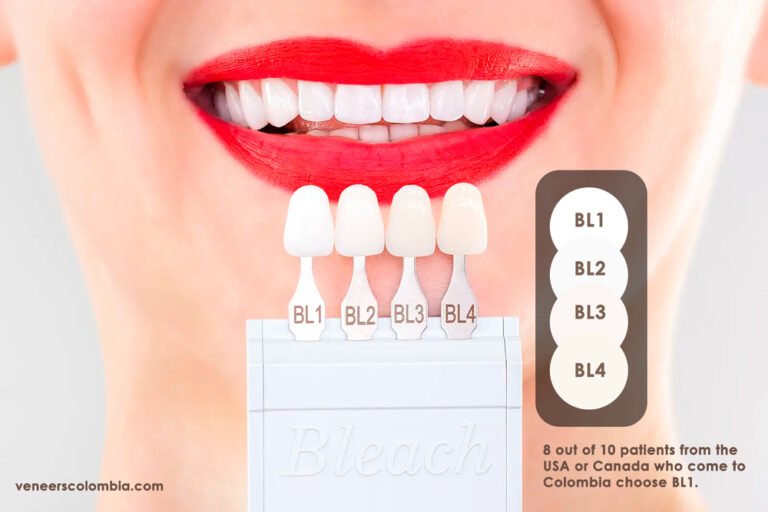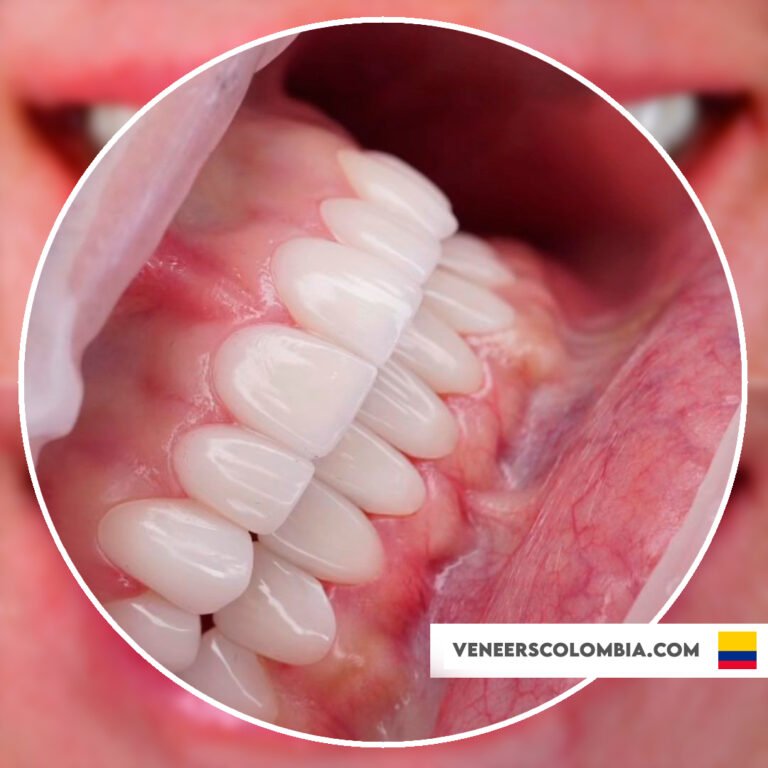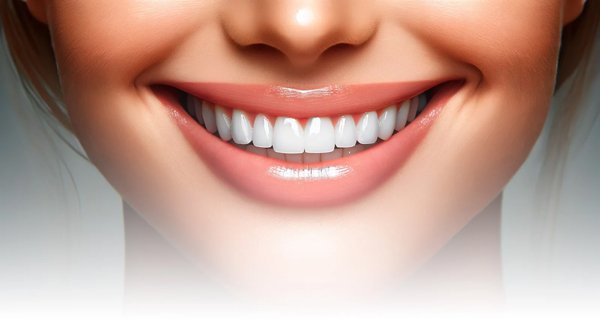Porcelain veneers are a popular cosmetic dentistry option used to improve the appearance of teeth. However, some people have raised concerns about the safety of these dental restorations. Are porcelain veneers toxic? In this section, we’ll explore the potential health risks associated with porcelain veneers and provide a comprehensive guide to understanding their safety profile.
Porcelain veneers are designed to be durable and long-lasting, but they are also made from materials that could potentially be harmful to your health. The composition of these dental restorations can vary depending on the manufacturer and may contain toxic materials such as lead or cadmium.
While there is no conclusive evidence linking porcelain veneers to negative health effects, it’s still essential to consider all the potential risks before deciding to undergo the procedure. We recommend discussing any concerns about porcelain veneers with your dental provider to ensure you are making an informed decision about your oral health.
Key Takeaways
- Porcelain veneers may contain potentially harmful materials like lead or cadmium.
- There is no conclusive evidence linking porcelain veneers to negative health effects.
- Consider discussing any concerns about porcelain veneers with your dental provider before undergoing the procedure.
- It’s important to prioritize your overall health and safety when considering any dental procedure.
Understanding Porcelain Veneers
If you’re considering porcelain veneers, it’s essential to understand what they are and how they work. Porcelain veneers are thin, custom-made shells that are placed over the front surface of your teeth to improve their appearance. They are commonly used to fix discolored, chipped, or misaligned teeth and can also be used to close gaps between teeth.
The procedure typically involves a few visits to your dentist. During the first visit, your dentist will examine your teeth and discuss the best treatment options for you. If porcelain veneers are chosen, your dentist will take impressions of your teeth to create a custom mold for your veneers. During the second visit, your dentist will prepare your teeth by removing a small amount of enamel to make room for the veneers. The veneers are then bonded to your teeth using a special adhesive.
Porcelain veneers are an effective way to achieve a bright, beautiful smile, but it’s important to be aware of the potential risks and safety concerns. In the next section, we will examine the safety of porcelain veneers in more detail and address any concerns about potential toxins or harmful materials used in their production.
“Porcelain veneers are an effective way to achieve a bright, beautiful smile, but it’s important to be aware of the potential risks and safety concerns.”
Examining the Safety of Porcelain Veneers
When considering any dental procedure, safety should be a top priority. Porcelain veneers are no exception to this rule. While there have been some concerns raised about the potential toxicity or harmful effects of these dental restorations, the overwhelming majority of research suggests that porcelain veneers are a safe and effective option for improving the look of your smile.
According to a study published in the Journal of the American Dental Association, porcelain veneers have a success rate of over 90%. This means that the vast majority of patients who receive porcelain veneers experience little to no negative side effects or complications.
Additionally, while porcelain veneers are made from materials that may contain trace amounts of toxins, strict regulations and quality control standards ensure that these levels are well within safe limits. The American Dental Association (ADA) closely monitors the safety of dental materials, including those used in porcelain veneers, and has deemed them safe for use in dental procedures.
| Porcelain Veneers Safety | Potential Toxins in Porcelain Veneers | Harmful Effects of Porcelain Veneers | |
|---|---|---|---|
| Research Findings | Porcelain veneers are considered safe with a success rate of over 90% | Materials may contain trace amounts of toxins but are within safe limits regulated by the ADA | Complications with porcelain veneers are rare and typically related to improper application or maintenance |
| Regulatory Oversight | The ADA closely monitors dental materials and deems porcelain veneers safe for use in dental procedures | Strict quality control standards ensure that toxins in porcelain veneers are within safe limits | N/A |
While there is a small potential for porcelain veneers to cause harm, this risk is greatly minimized with proper research, selecting a qualified dental provider, and following appropriate care and maintenance instructions. Overall, porcelain veneers are a safe and reliable way to achieve a beautiful smile.
The Materials Used in Porcelain Veneers
Porcelain veneers are thin, custom-made shells that are attached to the front surface of teeth to improve their appearance. They are made of porcelain, a type of ceramic material, which is known for its durability and natural tooth-like appearance. However, like many dental materials, the production of porcelain veneers can involve the use of certain chemicals or substances that some may perceive as potentially toxic or harmful.
To understand the safety of porcelain veneers, it’s important to examine the materials used in their production. The main materials used in the production of porcelain veneers are porcelain powder and bonding materials.
| Material | Composition | Purpose |
|---|---|---|
| Porcelain Powder | A type of ceramic material made from a mixture of kaolin, feldspar, and quartz | The main component of the veneer that provides its tooth-like appearance |
| Bonding Materials | Resin-based materials | Used to attach the veneer to the tooth surface |
While these materials have been used in dentistry for many years and are considered safe, some types of bonding materials may contain trace amounts of chemicals, such as bisphenol A (BPA), which has been linked to potential health risks. It’s important to note, however, that the amount of BPA found in dental materials is considered to be very low and unlikely to cause harm in humans.
In addition, porcelain veneers are custom-made for each patient, which means that they are specifically designed to fit the individual’s teeth and mouth. This personalized approach minimizes the risk of any adverse reactions or complications during the application process.
Overall, while the production of porcelain veneers may involve the use of certain materials that some may perceive as potentially toxic or harmful, the materials used are generally considered safe and have been extensively tested for their effectiveness and safety in dental restorations.
Research on Porcelain Veneers and Toxicity
As with any medical procedure, it’s essential to understand the potential risks involved. Porcelain veneers have been scrutinized for their safety, particularly regarding their potential toxicity. However, there is still much debate on this subject, and research has yielded mixed results.
Some studies have suggested that the materials used in porcelain veneers could pose a health risk. For example, a study conducted on dental professionals found that using dental composites containing bisphenol A (BPA) could lead to potentially adverse health effects, including reproductive disorders and cancer. However, it’s essential to note that porcelain veneers do not contain BPA.
Other research has shown that there are no significant health risks associated with porcelain veneers. For example, a study published in the Journal of Oral Rehabilitation found that patients who received porcelain veneers did not exhibit any adverse effects, and their overall oral health improved.

Ultimately, the available research on porcelain veneers and toxicity is inconclusive. While some studies have raised concerns about possible health risks, others have found no evidence to support these claims. It’s essential to discuss your concerns with a reputable dental provider and evaluate all the available information before making a decision about porcelain veneers.
Understanding the Benefits of Porcelain Veneers
If you’re considering porcelain veneers but have some concerns about their safety, it’s important to understand the potential risks alongside their benefits. Porcelain veneers are a popular and effective way to improve the appearance of your teeth and enhance your smile.
They are made of a thin layer of porcelain material that is applied to the front of your teeth to improve their color, shape, or size. Veneers can help cover up imperfections such as stains, chips, or cracks, and even minor misalignments.
One of the main benefits of porcelain veneers is the natural look they provide. The material used for veneers is designed to mimic the appearance of natural teeth, so they blend in seamlessly with your existing smile. Additionally, porcelain veneers are stain-resistant, which helps maintain their bright and white appearance over time.
Another benefit is the durability of porcelain veneers. With proper care, they can last up to 10-15 years, making them a long-term investment in your dental health and appearance.
Overall, porcelain veneers offer a safe and effective way to improve your smile and enhance your self-confidence. While there are potential risks associated with any dental procedure, selecting a reputable dental provider and discussing any concerns with your dentist can help ensure a successful outcome.
Choosing a Reputable Dental Provider
When it comes to porcelain veneers safety, selecting a reputable dental provider is crucial. Not all dentists are created equal, and you want to be sure you are choosing a qualified professional who prioritizes patient safety and uses high-quality materials.
Before selecting a dentist, do your research. Look for reviews and testimonials from previous patients. Check the dentist’s credentials and experience. You should also ask questions about the materials they use and their approach to patient care. A knowledgeable dentist will be happy to answer your questions and address any concerns you may have.
It’s also important to consider the overall cleanliness and organization of the dental office. A clean, well-organized office is a good indication that the dentist takes their practice seriously and cares about patient safety.

When you choose a reputable dental provider, you can feel confident that your porcelain veneers are being applied with care and attention to detail. You can relax, knowing that you are in good hands and that your dental procedure will be as safe and successful as possible.
Exploring Alternatives to Porcelain Veneers
If you have concerns about the safety or potential toxicity of porcelain veneers, there are alternative options available that can help you achieve a beautiful smile. These alternatives may also be more cost-effective than porcelain veneers and can provide similar results. Here are some options to consider:
Composite Bonding
Composite bonding is a popular alternative to porcelain veneers that involves applying a tooth-colored resin directly to the teeth. The resin is then shaped and polished to match the surrounding teeth and can correct a range of cosmetic issues, including discoloration, chipping, and gaps between teeth. While composite bonding may not be as durable or long-lasting as porcelain veneers, it is often more affordable and requires less tooth preparation.
Dental Crowns
Dental crowns are another alternative to porcelain veneers that can improve the appearance of your teeth. Like veneers, crowns are custom-made to fit over existing teeth, but they cover the entire tooth rather than just the front surface. Crowns can correct a variety of cosmetic issues, including discoloration, cracks, and misshapen teeth. While they may be more expensive than composite bonding, dental crowns are highly durable and can last for many years with proper care.
Teeth Whitening
If your main concern is tooth discoloration, teeth whitening may be a suitable alternative to porcelain veneers. There are several different teeth whitening options available, including in-office treatments and at-home kits. While teeth whitening may not be as effective at correcting other cosmetic issues, it can provide a noticeable improvement in the appearance of your smile.
Tip: It’s important to discuss all of your options with a qualified dental professional to determine which treatment is best for your individual needs and budget.
Porcelain Veneers in Colombia: a Safe and Affordable Solution
If you’re looking for a safe, affordable solution to achieve the perfect smile, look no further than VeneersColombia. Our experienced dental professionals use high-quality materials and advanced techniques to ensure the safety and satisfaction of our patients.
At VeneersColombia, we understand that porcelain veneers safety is a top concern for many patients. That’s why we prioritize the use of safe, non-toxic materials in our treatments. Our porcelain veneers are made from high-quality dental ceramics that are free from harmful chemicals or toxins.
Our patients are consistently pleased with the results of their porcelain veneer treatments, which can effectively correct a wide range of dental imperfections, including discoloration, gaps, and misalignments. Our skilled dental professionals work closely with each patient to ensure that their individual needs and preferences are met.
And in addition to our high-quality porcelain veneer treatments, VeneersColombia also offers a range of alternative options for those seeking a less invasive or more affordable solution for improving their smiles. From teeth whitening to dental bonding, our team is dedicated to helping our patients achieve their dream smiles in a safe and comfortable environment.
Why Choose VeneersColombia?
| Benefits of VeneersColombia | Other Dental Providers |
|---|---|
| Experienced dental professionals | Less experienced staff |
| High-quality porcelain veneers | Cheap or low-quality materials |
| Safe, non-toxic treatments | Use of harmful chemicals |
| Customized treatment plans | One-size-fits-all approach |
With VeneersColombia, you can trust that you’re receiving the safest, most effective treatment for your individual needs and preferences. Contact us today to learn more about our porcelain veneer treatments and alternative options for achieving your dream smile.
Conclusion
Now that we have explored the question “Are porcelain veneers toxic?” it’s clear that while concerns exist, proper research, selecting reputable dental providers, and exploring alternative options can help individuals achieve a beautiful smile while prioritizing their overall health and safety.
When considering the safety of porcelain veneers, it’s essential to understand their composition and materials used in production. While potential toxins or chemicals may be present, current scientific studies suggest that the overall safety profile of porcelain veneers is positive.
If you’re interested in porcelain veneers, it’s crucial to choose a reputable dental provider who uses high-quality materials to ensure safety. You should also consider alternative options if you have concerns about potential toxicity.
At VeneersColombia, we offer a safe and affordable solution for achieving a perfect smile. Our experienced dental professionals prioritize patient safety and use high-quality materials to provide the best possible outcome for our patients.
If you have any further questions or doubts about porcelain veneers’ safety or potential toxins, please don’t hesitate to reach out to us. We are more than happy to provide guidance and assistance to help you make informed decisions about your dental health.
FAQ
Are porcelain veneers toxic?
No, porcelain veneers are not toxic. They are made from dental-grade porcelain, which is biocompatible and safe for use in the mouth.
What are the potential toxins in porcelain veneers?
There are no known toxins in porcelain veneers. The materials used in their production undergo rigorous testing to ensure they meet safety standards.
Are there any health risks associated with porcelain veneers?
When performed by a qualified dental professional, porcelain veneers are a safe and minimally invasive dental procedure. However, like any dental treatment, there may be minor risks such as tooth sensitivity or gum irritation, which are temporary and manageable.
What are the harmful effects of porcelain veneers?
When properly applied and maintained, porcelain veneers do not have any harmful effects. They are designed to improve the appearance of teeth and enhance smiles.
Do porcelain veneers contain toxic chemicals?
No, porcelain veneers do not contain toxic chemicals. The materials used in their production, such as dental porcelain and bonding agents, are safe and approved for dental use.
Is there any scientific research on the toxicity of porcelain veneers?
Scientific research has not found any evidence of toxicity associated with porcelain veneers. Studies have shown that they are a safe and effective dental restoration option.
What are the benefits of porcelain veneers?
Porcelain veneers offer several benefits, including the ability to improve the appearance of stained, chipped, or misaligned teeth. They can also enhance the overall aesthetics of a smile and boost self-confidence.
How can I ensure the safety of my porcelain veneer procedure?
To ensure the safety of your porcelain veneer procedure, it is important to choose a reputable dental provider who follows strict sterilization protocols and uses high-quality materials. Research and select a qualified professional with experience in cosmetic dentistry.
Are there alternatives to porcelain veneers?
Yes, there are alternative options to porcelain veneers, such as composite veneers or dental bonding. These alternatives can achieve similar aesthetic results and may be recommended based on individual needs and preferences.
Is VeneersColombia a safe and affordable solution for porcelain veneers?
Yes, VeneersColombia is a safe and affordable solution for porcelain veneers. They prioritize patient safety and have experienced dental professionals who use high-quality materials to ensure optimal results.





